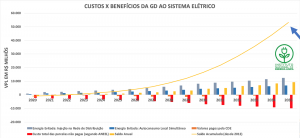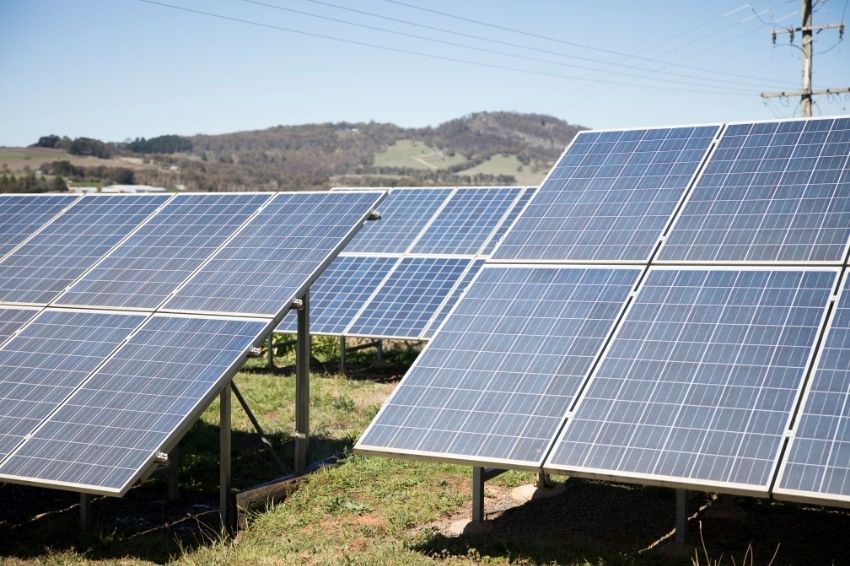The creation of the legal framework for DG (distributed generation), with the approval of the PL 5829, is expected to bring approximately R$ 50 billion in benefits to the electricity sector by 2035.
This is what a calculation carried out by ABS (Bahia Solar Energy Association) and by INEL (National Institute of Clean Energy) and presented this Wednesday afternoon (7) during a press conference about PL 5829. According to the study, this amount is the result of the positive impact of GD in the country.
Still according to the analysis, the GD legal framework will contribute to maintaining the volume of water in the reservoirs, reduce electrical losses and, consequently, there will be less need to activate tariff flags.
For this calculation, engineer Tássio Barboza, Technical Director of ABS and Deputy Secretary of Technical Affairs at INEL considered the positive impacts of DG on the Brazilian energy matrix, different from the study presented by ANEEL (National Electric Energy Agency), which according to Technical Note No. 188/2019, did not 'quantify the potential benefits of distributed generation on system costs'.
See below the analysis of costs and benefits of GD to the electrical system.

Still according to the calculation, even without considering any benefits of DG to the electrical system, the impact of DG on the CDE (Energy Development Account) with PL 5829 would still be less than 5% in the worst case. (See below).

During the virtual meeting, representatives from ABS, ABGD (Brazilian Association of Distributed Generation), ABSOLAR (Brazilian Association of Photovoltaic Solar Energy), Abiogás (Brazilian Biogas Association) and AbraPCH (Brazilian Association of PCHs and CGHs), in addition to INEL and PL 5829's technical advisor, Ricardo Costa, the urgency of approving PL 5829 was highlighted.
According to the entities, the sense of urgency exists because ANEEL made available last week the new draft of REN 482 (Normative Resolution No. 482/2012) and, if the National Congress does not approve the GD legal framework by June 30, the Agency may make changes to the compensation system.
If this occurs, there will be a drop in GD's profitability of 62% which, according to experts in the segment, would make GD unviable in Brazil, with paybacks which could exceed 22 years.
Draft harms GD in Brazil
According to the associations' assessment, the draft presented by ANEEL aims to meet the distributors' expectations, using the opinion of the TCU (Federal Audit Court) as justification. For ABSOLAR, the measure taken by ANEEL represents a sign of breaking the Agency's word before agents in the GD sector, the National Congress and society.
Read more: ABGD filed a writ of mandamus with the STF against the TCU Ruling
“It seemed like an April 1st joke, but, unfortunately, it’s not. ANEEL broke the trust of sector agents and the National Congress. It was not long ago that ANEEL declared that it would leave it to Congress to decide on the GD system. However, the proposed proposal managed to go beyond the absurdity presented in October 2019 and not only disregarded all the benefits of DG, but is also an affront to the National Energy Policy Council. We all know the urgency of approving a new legal framework for the sector, via Bill 5829”, highlighted lawyer Bárbara Rubim, vice-president of the ABSOLAR Board of Directors.
To the Solar Channel lawyer Marina Meyer, legal director of ABGD commented that the new draft prepared by the Agency brings alternative 5, presented at the end of 2019, as an update to resolution 482. “ANEEL disregarded all the conversations it had with the sector for more than two years (…) what it means to end GD throughout Brazil. We cannot accept this”, said Marina.















